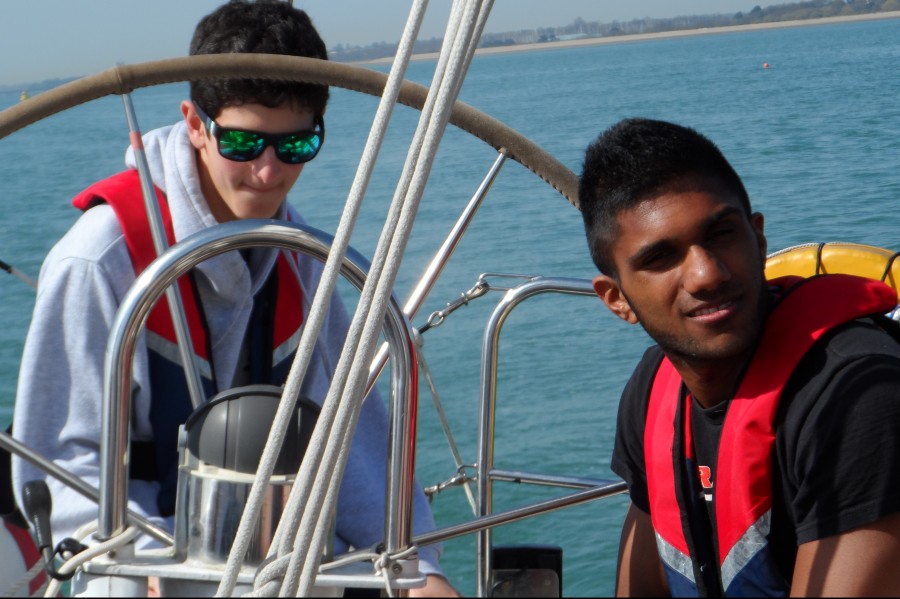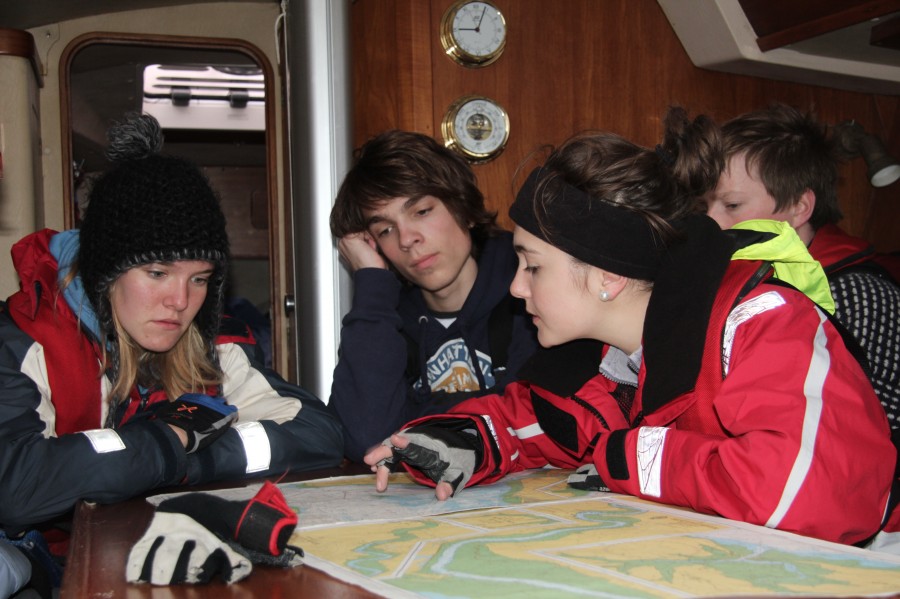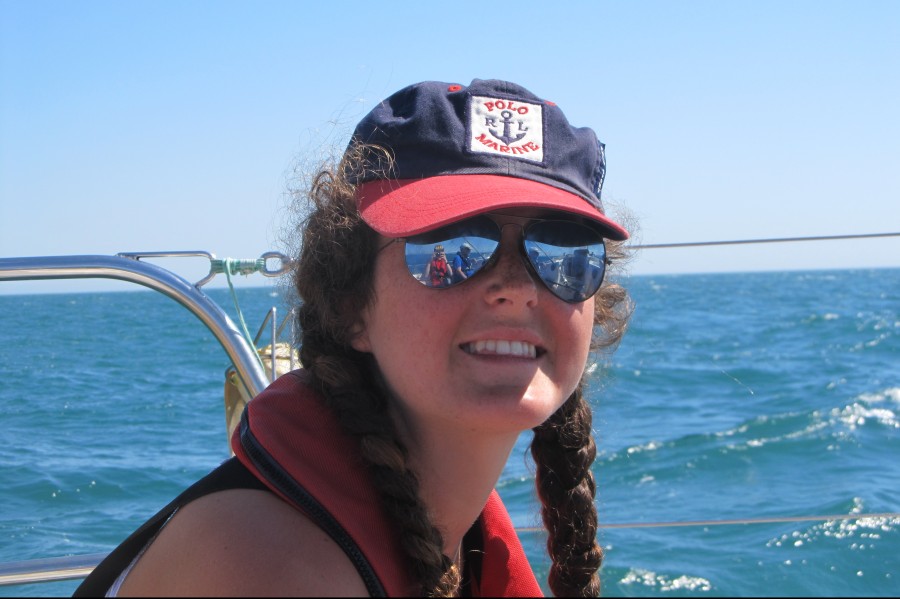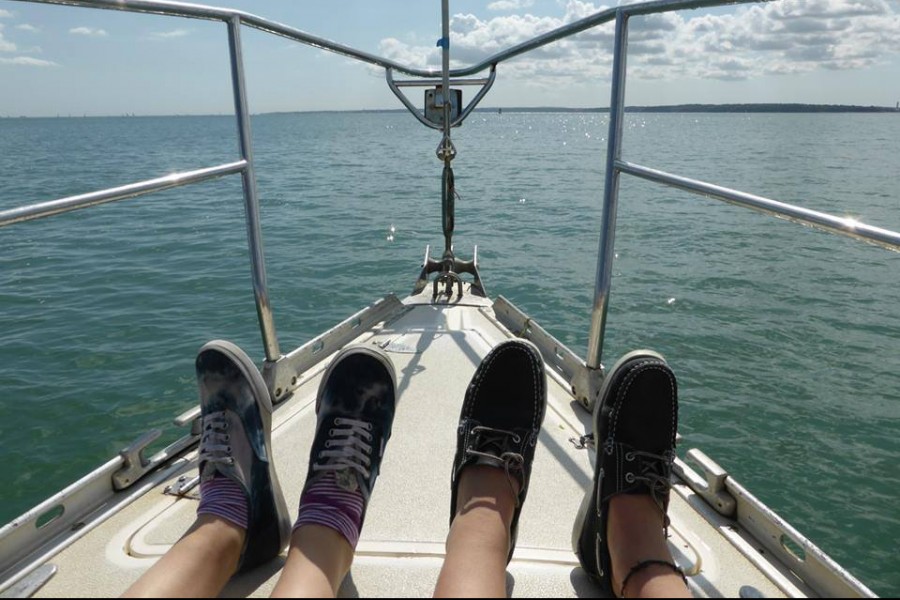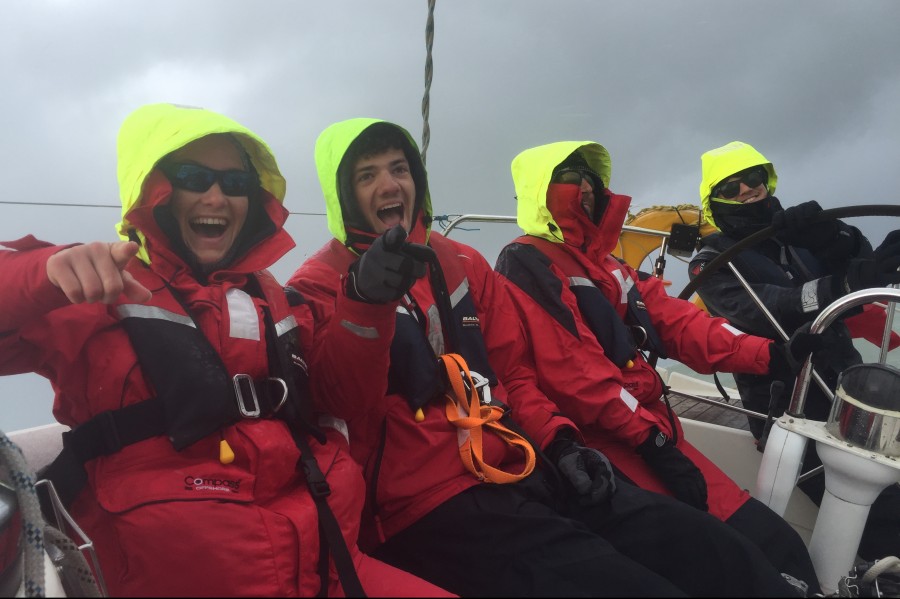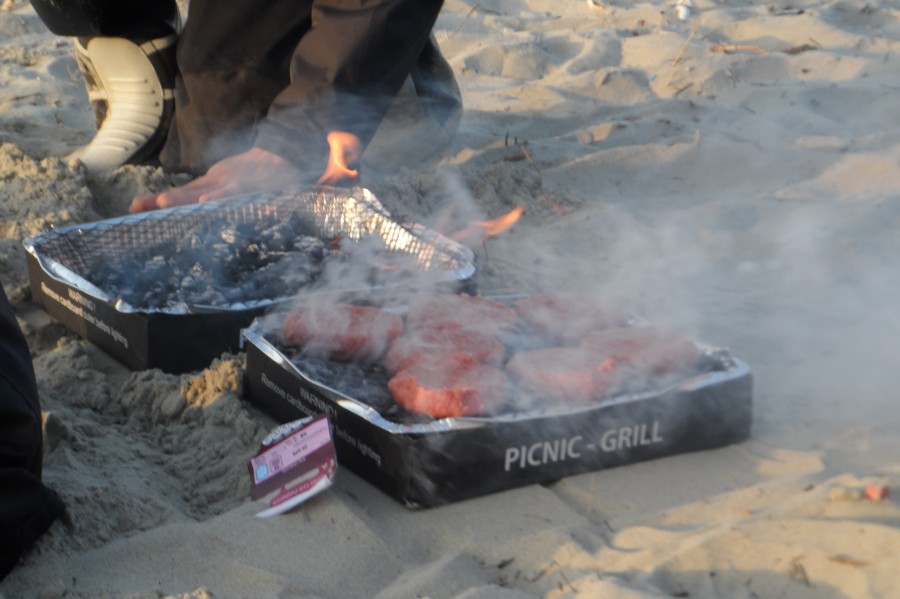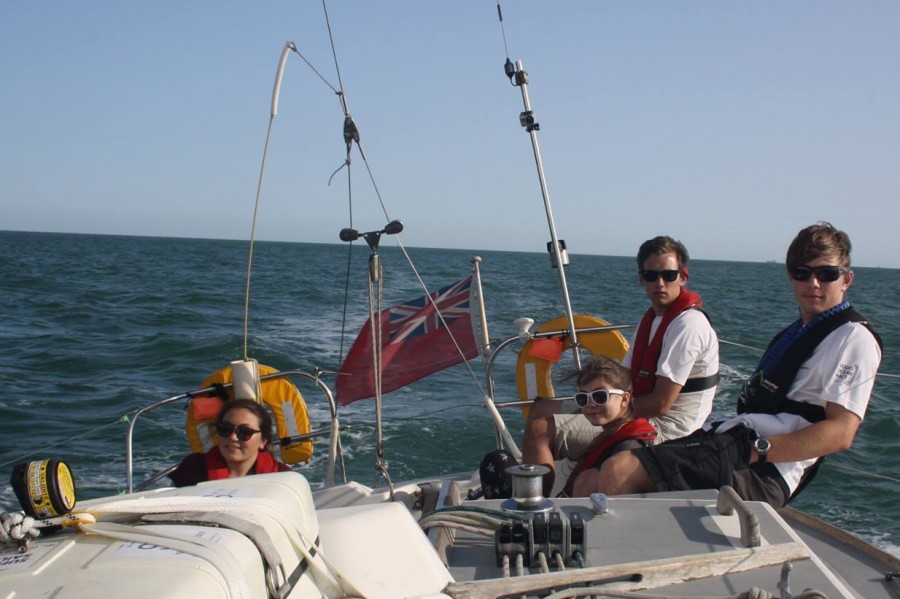The aim of the RYA Competent Crew course is to introduce the complete beginner to cruising and to teach personal safety, seamanship and helmsmanship to the level required to be a useful member of the crew of a cruising yacht.
1. Knowledge of sea terms and parts of a boat, her rigging and sails
Sufficient knowledge to understand orders given concerning the sailing and day-to-day running of the boat.
2. Sail handling
Bending on, setting, reefing and handling of sails
Use of sheets and halyards and their associated winches
3. Rope work
Handling ropes, including coiling, stowing, securing to cleats and single and double bollards
Handling warps.
Ability to tie the following knots and to know their correct use: figure-of-eight, clove hitch, rolling hitch, bowline, round turn and two half hitches, single and double sheet bend, reef knot
4. Fire precautions and fighting
Awareness of the hazards of fire and the precautions necessary to prevent fire
Knowledge of the action to be taken in event of fire
5. Personal safety equipment
Understands and complies with rules for the wearing of safety harnesses, lifejackets and personal buoyancy aids
6. Man overboard
Understands the action to be taken to recover a man overboard
7. Emergency equipment
Can operate distress flares and knows when they should be used.
Understands how to launch and board a liferaft
In addition to the above syllabus items, the instructor may cover other methods of sending a distress signal including the use of the VHF radio to send a Mayday call.
8. Manners and customs
Understands accepted practice with regard to: use of burgees and ensigns, prevention of unnecessary noise or disturbances harbour including courtesies to other craft berthed alongside.
Quite often yachts will be in close proximity with each other in harbour and it is therefore important for skippers and crew to show consideration to others especially at night. One of the main causes for complaint is people that play music and speak loudly in the cockpit well into the night. Sound will travel a long way in a harbour or marina at night thus disturbing the sleep of others.
Aware of the responsibility of yacht skippers to protect the environment.
During the course, the instructor will explain the law regarding the disposal of rubbish at sea and the use of heads in harbour.
9. Rules of the road
Is able to keep an efficient lookout at sea
10. Dinghies
Understands and complies with the loading rules
Is able to handle a dinghy under oars
11. Meteorology
Awareness of forecasting services and knowledge of the Beaufort scale
12. Seasickness
Working efficiency is unaffected/partially affected/severely affected by seasickness. (Delete as applicable)
This is an assessment which will be made by the instructor. If a student is seasick during a course but can still function as a useful crew member the log book will usually be marked up as unaffected by the instructor.
13. Helmsmanship and sailing
Understands the basic principles of sailing and can steer and trim sails on all points of sailing
Can steer a compass course, under sail and power.
14. General duties
Has carried out general duties satisfactorily on deck and below decks in connection with the daily routine of the vessel
This is where you can potentially fail the course if you do not clean the boat at the end of the course or carry out your share of the domestic duties during the course!


